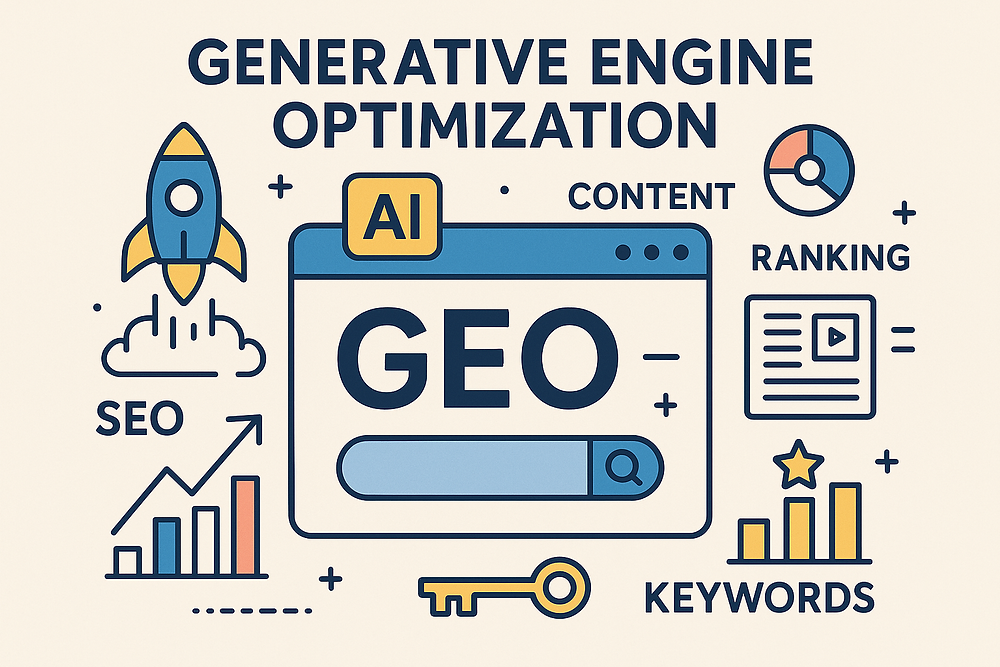Presence vs. Discoverability (Optimizing for AI Tools)
Reality check: Ask ChatGPT or another AI tool for a list of the best providers of your product or service in your local market.
First — see if your website or online store shows up in the results at all. Second — take a look at which competitors do appear. Chances are, the picture you see here will be quite different from what Google search or your own industry knowledge suggests.
ChatGPT, Gemini, Perplexity, and other AI tools have changed how customers discover products and services. If a potential client asks an AI, “What’s the best window coverings online store in Estonia?”, only businesses with relevant, trustworthy information available will make it into the recommendations.
When optimizing for AI tools, the focus should shift from just targeting product or service keywords to providing clear answers to the specific questions your target audience might ask before they decide to contact a provider.
- Presence means you have a website, social media accounts, and posts.
- Discoverability means you appear at the exact moment someone is searching for a solution in your category — even if they don’t yet know your name or product.
5 Visibility Gaps That Keep You Out of AI Search Results
1. Missing from social platform search results
If your content doesn’t show up on TikTok, YouTube, or LinkedIn when people search “best [category]”, you’re losing potential traffic before AI even enters the picture.
2. Absent from AI conversations
ChatGPT and Gemini build recommendations based on existing sources and mentions. If your brand isn’t referenced in trusted articles, blogs, or communities, AI simply won’t know you exist.
3. Missing from communities where buying decisions happen
Recommendations in Reddit threads, Facebook groups, Discord servers, and niche forums often end up in AI model training data. Be active where real people are asking and answering questions.
4. Absent from category-specific searches
AI tools tend to recommend companies mentioned in the context of specific queries, like “best sauna cabin manufacturer.”
5. Campaigns drive interest — but traffic goes to competitors
If a potential customer sees your ad, searches for more info, and AI recommends a competitor instead, that’s a discoverability problem — not an advertising problem.
How to Optimize Your Brand for AI Tools
1. Add AI-friendly keywords and questions to your content
AI tools favor content that answers specific queries. For example:
- “How to choose the best digital marketing agency?”
- “Which SEO strategy drives the most sales for an online store?”
2. Build credible references
AI tools rely on trustworthy sources. You can:
- Write guest posts for reputable blogs
- Reference studies and statistics
- Get mentioned in industry publications
3. Be present at decision-making moments
Identify the channels and communities where your customers look for information before purchasing — then create content that answers the questions they ask there.
Example: If you make custom kitchens, your potential clients might be asking:
- “How much does a custom kitchen cost?”
- “What’s the delivery time for a made-to-order kitchen?”
- “What should I consider before ordering a custom kitchen?”
- “What’s the best material for a kitchen countertop?”
4. Structure content for easy scanning
Use clear subheadings, bullet points, and short paragraphs. AI tools “read” content structure and prefer clear, logical formatting.
Why AI Tool Optimization Matters
Modern digital marketing optimization is no longer just about SEO or social media — it’s about AI search optimization. If your brand doesn’t appear in ChatGPT, Gemini, and Perplexity recommendations, you’re invisible at the very start of your customers’ decision-making process.
Want your business to always appear in AI recommendations?
Contact us, and we’ll take your brand’s discoverability to the next level.



